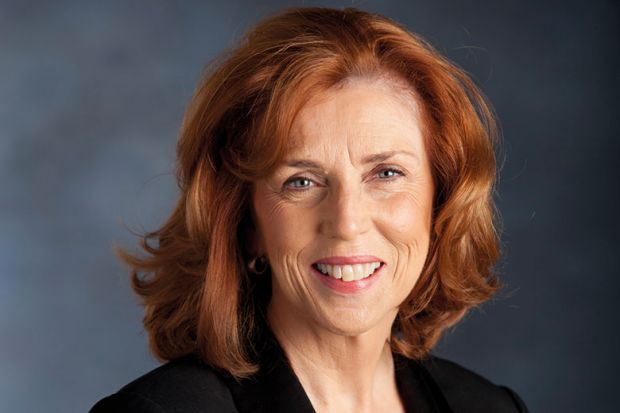Geopolitical uncertainty will disrupt international education more lastingly than the current pandemic-induced border closures, a webinar has heard.
Monash University vice-chancellor Margaret Gardner told a Committee for Economic Development of Australia higher education forum that the “turning inward” of many countries was “very threatening” to open economies such as Australia, where policy settings around foreign relations and trade had long been in “harmony”.
“We are in a very challenging period for international settings,” Professor Gardner told the forum. “We cannot pretend that the thing that is essential to the quality of what we do – the free flow of knowledge and people across borders – is not being challenged.
“We have to remake our understanding of how essential that free flow is.”
Professor Gardner said Monash had begun “rethinking” its approach to its offshore campuses in China, India and Malaysia and its recently approved outpost in Indonesia. Traditionally, first-year arts students had been guaranteed an offshore experience in such locations, partly to help cultivate Australia’s relationships with its neighbours.
She said the university now planned to start some of its international students in intensive studies in offshore campuses before bringing them to Australia. “That is not just a response to the restricted borders now. It’s rethinking what the model is going to be…when the geopolitical uncertainty starts to shift the balance [regarding] open flow across borders.”
She said the issue demanded “a really serious amount of thinking” by universities. “The right settings are vital and they’re not just keeping the old settings, because we’re in a new place. We have to empower institutions to be part of that rethinking. Rather than rolling around in the surf, we’d like to…ride the top of the wave out.”
Professor Gardner said the Australian university sector needed to start “getting our house in order around domestic education funding, and particularly funding for discovery research” during the pandemic-enforced absence of international students.
“We need a system that has transparent research costs – [something that] we haven’t had to confront because we’ve had this other growing revenue source,” she said.
Universities needed to “reshape the message” to international students that Australia depended on them to fund research and courses for domestic students, she said.
Education minister Dan Tehan told the forum that Australia’s success in managing the pandemic would help expedite the resumption of international education flows. “Everything I’m hearing and seeing from international students [suggests] the demand is still there. They want to resume their studies here and we will see new growth,” he said.
Mr Tehan said the quality of Australian education had not diminished during the crisis. “I would argue that it’s improved. Our ability now to educate online is first class. Our ability to offer a range of different options to international students – including short courses and micro-credentials that they will be able to stack – enhances our education offering.”
Register to continue
Why register?
- Registration is free and only takes a moment
- Once registered, you can read 3 articles a month
- Sign up for our newsletter
Subscribe
Or subscribe for unlimited access to:
- Unlimited access to news, views, insights & reviews
- Digital editions
- Digital access to THE’s university and college rankings analysis
Already registered or a current subscriber?








